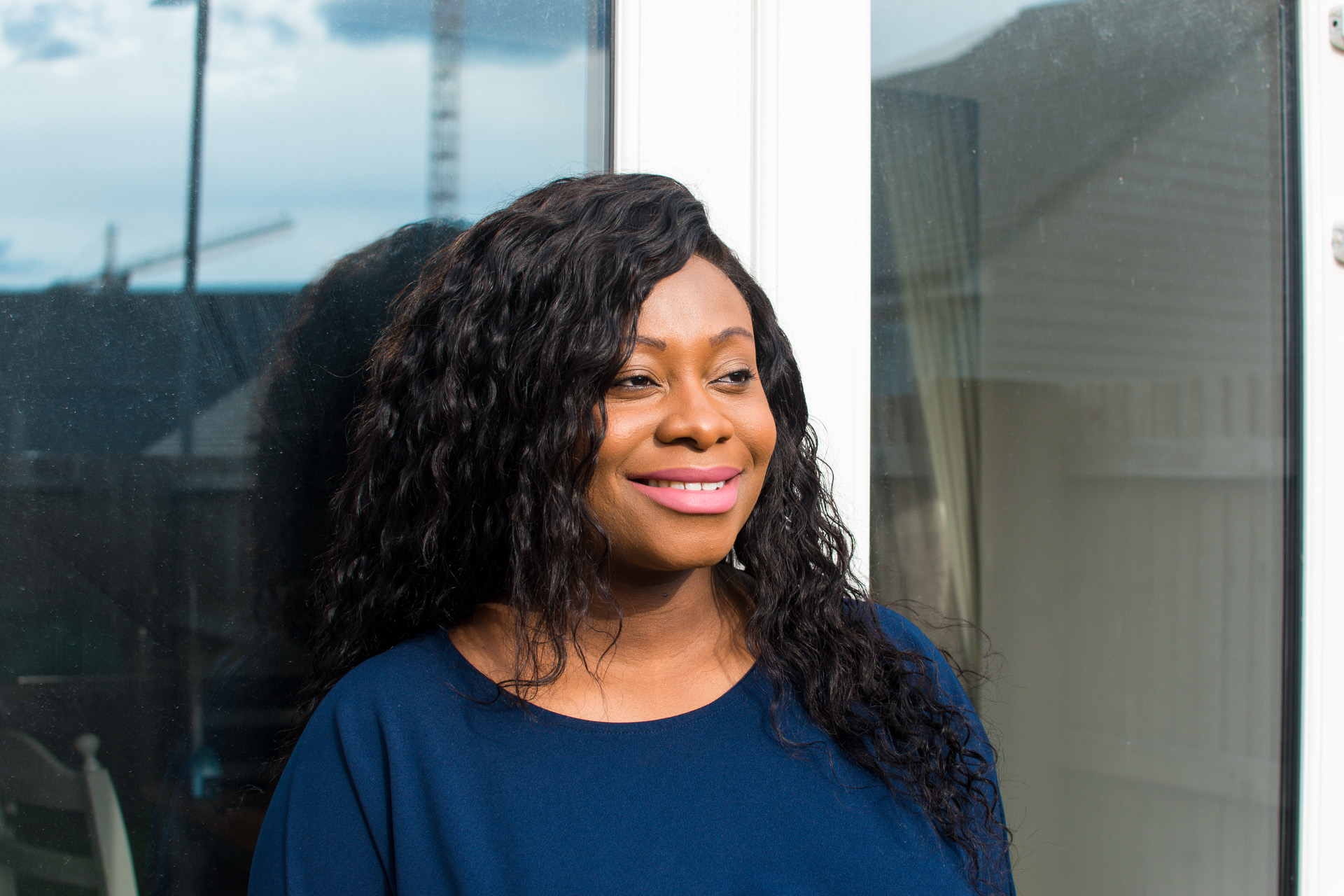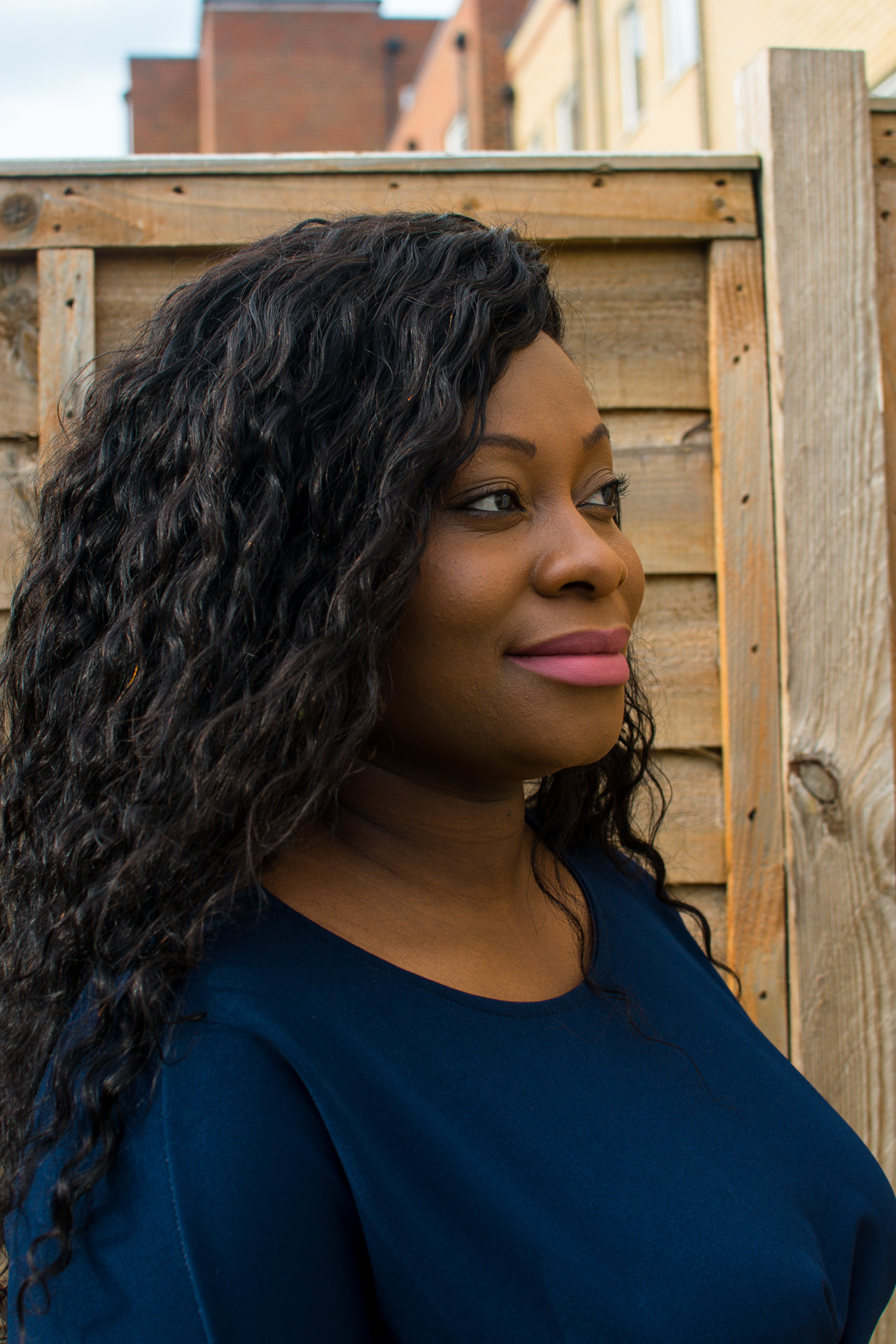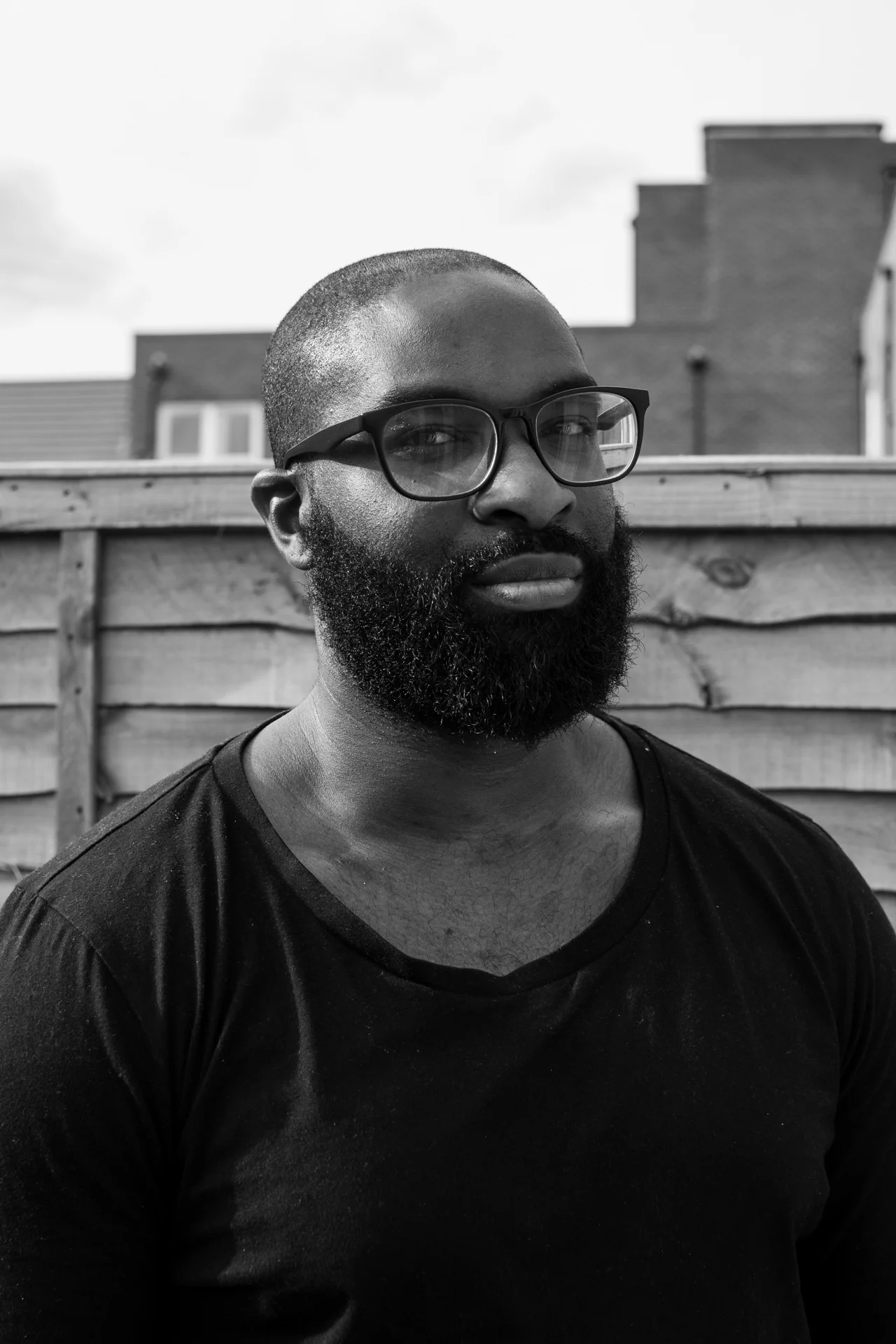Jummy
Jummy, 34
Nigerian ethnicity: Yoruba
City/County grew up in: Lagos (Nigeria), Kent
City/County of residence: Kent
*audio below
Describe your heritage
My heritage is full Nigerian. I’m Yoruba. My Mum is from Ondo state, my dad is from Osun state. So yeah that’s me.
What to you, makes you Black British Nigerian? How do you define it?
I guess because my heritage is Nigerian, I can identify to a lot of my upbringing because I came into the UK aged 15. So a lot of things were already set. So coming to the UK actually it was quite difficult for me, because I’d gone through all the things I needed to do. So my accent was already set, the way I spoke, so I had to learn how to be British. And that was quite a difficult time, going to a school where there were only 5 black girls in my whole year, that was quite a struggle for me. Yeah, I still, I don’t know, I guess you could say now aged over 30, I’ve only just crossed over spending more time in England than I did in Nigeria, which is quite interesting for me sometimes.
What challenges do you/have you faced that relate to your identity as a Black British Nigerian?
Do you know what, I was so puzzled the other week. So somebody posted a picture of her wearing her natural hair, and she worked for Bloomberg, and somebody at work tried to touch her hair. And I thought to myself – I’ve been working for the last 10+ years in the corporate sector, and I’ve never actually left my natural hair out. Going to work with my natural Afro hair out, and it just dawned on me that I don’t actually think that all the questions, all the indirect stuff people said to me when I was younger has left me. Because growing up in Erith with a lot of white people who probably weren’t exposed to a lot of black people – people just made fun of your hair, made fun of your style, made fun of your name, and I think it just stays with you, so you try to do everything you can to conform and now being in a place where I feel secure in myself, trying to learn a new me is quite difficult, so yeah I definitely still struggle with it. Especially when I have to present myself at work.
What do you love about being Black British Nigerian?
I just love being different I guess, I love being Black. I guess being Black at the moment seems to be fashionable; everybody wants everything we have which is great. It comes with it’s struggles but the benefits…yeah being Black British means there’s something for me to teach and educate somebody about my culture, my heritage, there’s something to teach my children. Somebody asked my son[3 years old] where he’s from, he said I’m from England, but I’m also Nigerian, and I felt proud, because he’s confident enough to say my journey is not only the fact that I’m from England. And we were in Greece while he said that, so I felt really proud. So yeah, I suppose being British means I have a past but that opens the way for me as well which helps, but most of all it’s nice being different and it’s okay to be different.
Do you think this country values your identity?
I don’t think the UK is there yet. Not because they don’t want to be, but there’s so many variations of Black people. There’s so many variations of African people. So my husband is half Nigerian half Ghanaian - even that enough for some people they can’t still fathom it, they’re just like “Oh but his name is Femi” – yes, I know, but his mum is Ghanaian. “Oh”. And you get that question like “Oh, I didn’t know that Black people are not just from one place” *giggles*. It’s quite awkward when people say things like that but I guess that is part of us being Nigerian British so that we can educate them, so yeah I think it’s still a bit difficult because they try. I guess they try to be understanding, but I’m always out there just looking for an opportunity to teach somebody something new. Somebody asked me a question about even my name – “Why do we call you Jummy when on your email your name is Olajumoke?”, well that’s my name but since you all seem to struggle to pronounce my name and I’m tired of you getting it wrong, I’ve just given you my nickname because it’s easier. And even our CVs, they ask us, what would you like to be called? I’m sure they put that on there because of all the African people in England, just because they don’t want to offend us by pronouncing our name wrong. So yeah, they’re trying, but we’re not there yet, and I guess maybe in our children’s generation they might be there, but for now they’re trying.
What does the future look like for Black British Nigerians - what are your hopes for us?
I think because a lot of us are getting more exposed, most of us are probably second-generation immigrant as well. So we’re more exposed in terms of travelling, we have more disposable income, so there’s a lot of culture even [we] are taking in. We’re no longer just Nigerian alone, now we know that we’re citizens of the world, so we can identify with other places other than being just Nigerian, or just being British and I think it’s always going to be a melting pot for us. So we’re always going to marry into other cultures, and all of that in itself, most people’s families now at least have a different race, or a different culture, or a different somebody, just because we’re not always going to remain a unified, you know, [a] typical Nigerian looking anymore, which is not a bad thing. It’s nice, it means that we would always learn new things, and teach our children, which is literally the most important thing, teach them other things other than just being Nigerian, or British, or Black. They have to be able to blend in into anywhere they go to.








